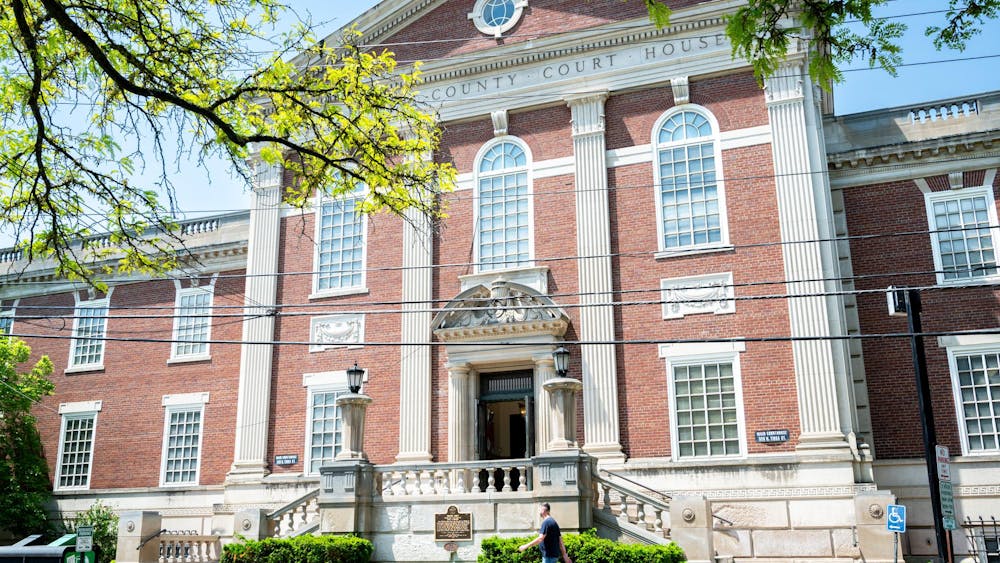As every single person in the lecture hall raised their hands when Prof. Elisha Cohn, Department of Literatures in English, asked who had read Jane Austen before, I shrank into my seat. It was the first day of classes of the fall semester and the English major in me was ashamed to admit it, but other than that one time my thirteen-year-old self had cracked open Pride and Prejudice before promptly proceeding to stuff it back into my bookshelf, I had never read anything by the famous English author.
But why would that even matter?
Jane Austen wrote all six of her novels just over 200 years ago in a time that seems distant and abstract to us today. Her worlds of ballgowns and marriage markets seem foreign and fantastical, and yet there’s something at the heart of her stories that’s proven to be everlasting. Every raised hand in that room proves it — Jane Austen has staying power. The question is, why?
Earlier this week, I met with Prof. Cohn, who took over teaching Jane Austen from Prof. Harry E. Shaw, Department of Literatures in English, emeritus, in the spring of 2023, to try to answer that question. Compared to other authors she teaches, Prof. Cohn says that “Austen is the one who is really still pulling that audience because so much of what she has to say and asks us to think about is still with us.”
New Austen adaptations keep popping up today, with the latest one being Netflix’s Persuasion. Prof. Cohn says that Austen’s almost sociological accounts of 17th century England are extremely portable because they are primarily “about the dynamics between characters,” which can be detached from their old-fashioned settings. It’s how we get adaptations like Clueless and Bridget Jones’s Diary, that while rooted in the 200 year-old stories, are utterly of their own time. They feel intensely relatable and relevant, showing just how astute Austen’s writing is. And not all adaptations have to be faithful, or even good. Cohn maintains that just the fact that people still care about these stories and “feel attached to this writer” is “extraordinary.”
A large part of what Austen writes is incredible love stories. Pride and Prejudice follows two imperfect characters who learn from each other and grow into a love that had me kicking my feet. When I read the famous “If I loved you less, I might be able to talk about it more” speech from Emma I literally squealed (Really… you can ask my roommate), and you can be sure I pined right alongside Elinor throughout the entirety of Sense and Sensibility. And while there certainly is value in romantic literature itself, Jane Austen offers us so much more. At their core, Jane Austen’s novels are fierce social critiques that use those spellbinding romances as vehicles to comment on women’s issues that are still relevant today.
As Prof. Cohn told me, “Austen has a kind of confidence that women taking the opportunity to really think about their lives is going to make a difference. That thinking itself is an experience of value, that it deserves its own time and space in which to happen and that it can really impact the trajectory of people’s lives for the better. That is very distinctively Austen.”
So it makes sense that a room mostly full of 20-something women was so full of excitement to read literature that gives importance to experiences that are uniquely ours in a world that often seems to dismiss us. “The significance of young women’s own views of their own lives remains urgently at stake,” Professor Cohn went on. She gushed about Mansfield Park’s Mary Crawford, who while nowhere near being the heroine of the story, she says is a “dynamic and fascinating” character who we get to see Austen unapologetically “unleash into the world.” She’s bold, confident and fiery, which makes her a joy to read.
We also talked about the importance Austen bestows upon Fanny Price’s consent and how it becomes the thing the whole plot of Mansfield Park pivots on. While generally quiet and meek, Fanny firmly expresses her ideas, “And it’s not that we have to endorse Fanny’s viewpoints, and in fact we might increasingly not endorse them, yet we as readers are forced to see and respect the power of Fanny’s decision over her own outcome.” The novel gives space to a young, low class girl’s ideas and desire, a desire that Cohn emphasizes, “belongs to her and no one else.”
As a modern reader, it's refreshing to see such powerful female characters speak out, mess up, learn, and ultimately end up happy. The novels celebrate their heroines’ autonomy and paint an intricate picture of what it’s like to just be as a girl. They allow us to see ourselves be powerful and flawed, loving and loved. It’s fun to watch Emma confidently argue with Mr. Knightley, and downright inspiring to read Elizabeth standing up to the arrogantly elitist Lady Catherine de Bourgh. Austen empowers young women and allows them to navigate complex circumstances with their wit alone, and she does it unabashedly.
Whether you do it in a class or laying cozily in your bed, I encourage you to immerse yourself in Jane Austen’s wonderful words. Let yourself be swept away by the horse drawn carriages and the fancy way the characters speak, but don’t forget to dig beyond the surface — you’re sure to strike gold. After all, they’re classics for a reason.
Austen values our intelligence and refuses to underestimate us because Jane Austen was one of us. She was a woman writing about women, for women. And 200 years later, here we are, still answering her call.
Rafaella Gonzalez is a junior in the College of Arts and Sciences. She can be reached at rag296@cornell.edu.











